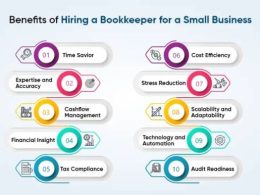Investing in real estate can be a lucrative and rewarding venture. It can also be risky if you don’t know what you’re doing. To minimize the risk involved, many investors are turning to property funds as a way to diversify their portfolio and maximize profits. Property funds are a type of collective investment vehicle that pools the resources of multiple investors to purchase real estate assets. In this blog post, we will discuss the basics of property funds and how they can help you reach your investment goals. We’ll also look at some strategies to ensure that you get the most out of your investments.
What are Property Funds?
Property funds are a type of real estate investment fund that pool together money from multiple investors to purchase properties. These funds can be used to purchase both commercial and residential properties, and can be an attractive investment for those looking for exposure to the real estate market without having to directly purchase and manage a property.
There are several different types of property funds, including public, private, and hybrid funds. Public property funds are typically traded on major exchanges and offer investors the ability to buy and sell shares in the fund at any time. Private property funds are only available to accredited investors, and usually have a minimum investment amount. Hybrid funds are a mix of public and private funds, and typically have features of both types.
Investing in a property fund can offer several benefits, including diversification, professional management, and liquidity. However, it is important to remember that these investments come with risks, including the risk of loss of capital. Before investing in any type of real estate investment fund, be sure to do your research and speak with a financial advisor to ensure it is the right fit for your investment goals.
Types of Property Funds
There are several different types of property funds, each with its own set of benefits and drawbacks. Here is a brief overview of the most common types:
- Open-Ended Funds: These funds are the most popular type of property fund, and they allow investors to buy and sell shares on a regular basis. The main advantage of open-ended funds is that they offer liquidity, meaning that investors can cash out their investment at any time. However, because these funds are constantly being bought and sold, they can be subject to higher fees and expenses.
- Closed-End Funds: Unlike open-ended funds, closed-end funds do not allow investors to buy and sell shares on a regular basis. Instead, shares are only traded when the fund is first launched, and then they are held until the fund is eventually liquidated. Closed-end funds typically have a set number of shares that are issued at the outset, so there is no risk of oversubscription like there is with open-ended funds. However, because these funds are not regularly traded, they can be more difficult to sell if you need to cash out your investment prematurely.
- Exchange Traded Funds (ETFs): ETFs are similar to mutual funds in that they allow investors to pool their money together to purchase a basket of assets. However, ETFs trade on an exchange like stocks, which means that they can be bought and sold throughout the day. This makes ETFs
Pros and Cons of Property Funds
When it comes to real estate investment, there are many different strategies that can be employed. One such strategy is investing in property funds. Property funds can offer a number of advantages, but there are also some potential drawbacks to be aware of. In this article, we’ll take a closer look at the pros and cons of property funds so that you can make an informed decision about whether or not they may be right for you.
PROS:
-Property funds can offer a more diversified portfolio than investing in individual properties. This can help to mitigate risk and provide greater potential for overall returns.
-Investing in property funds can be simpler and less time-consuming than managing individual properties yourself. This can be especially beneficial if you don’t have the expertise or experience in managing rental property.
-Property funds often have professional management teams in place which can help to maximize returns and minimize vacancies/tenant turnover.
CONS:
- Fees associated with investing in property funds can eat into your overall returns. Be sure to carefully review all fees before making any investment decisions.
- Property fund managers may have different objectives than you do as an investor. This could lead to disagreements down the road about how the fund should be managed, which could impact your return on investment negatively.
- You will likely have less control over individual properties when investing in a fund as opposed to owning them outright. This could limit your ability to make specific changes
How to Invest in Property Funds
If you’re looking for a way to invest in real estate without actually owning property, one option you might consider is investing in property funds. Property funds are portfolios of real estate assets managed by professional investors. You can invest in property funds through many different types of investment vehicles, including mutual funds, exchange-traded funds (ETFs), and closed-end funds.
There are many different types of property fund strategies out there, so it’s important to do your research and find one that aligns with your investment goals. For example, some property funds focus on a specific type of real estate asset, such as office buildings or retail properties, while others invest in a mix of different types of properties. Some property fund managers also use leverage to increase the potential return on investment.
Before investing in any type of property fund, be sure to carefully read the fund’s prospectus and get a clear understanding of the risks involved. Property investing is not without risk, and there’s no guarantee that you will make money from investing in a property fund. However, if you’re comfortable with the risks and have done your homework on choosing a quality property fund, investing in this type of vehicle can be a great way to gain exposure to the real estate market without having to directly own property.
Conclusion
Property funds are a great way to diversify your real estate portfolio and maximize its return potential. With the right research and preparation, you can make smart investments in property funds that will set you up for long-term financial security. We hope this article has provided you with an overview of how property funds work, their associated risks and rewards, and tips on how to get started investing in them safely. With the right information and guidance, property funds could be a lucrative addition to any real estate investor’s portfolio.











